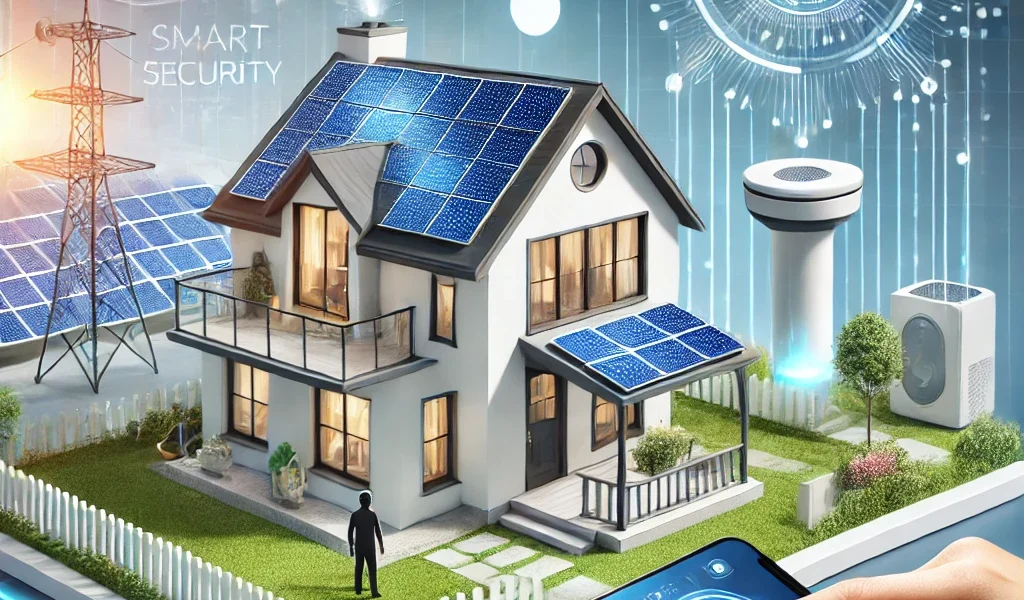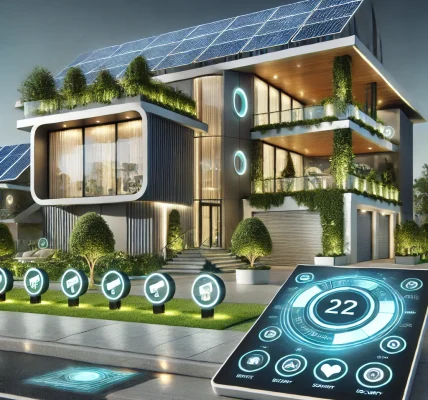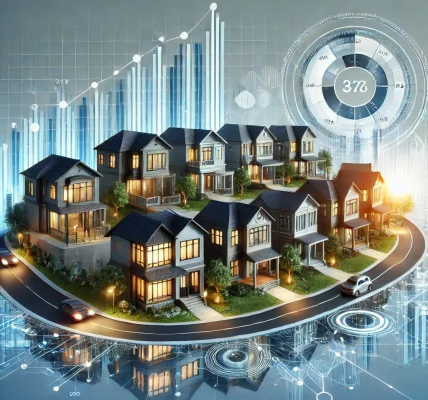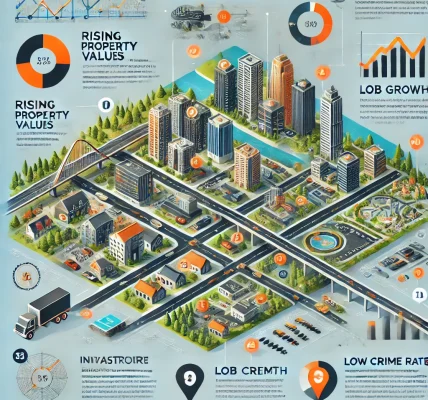Introduction
The real estate industry has witnessed a significant transformation with the rise of smart home technology. As home automation, artificial intelligence (AI), and the Internet of Things (IoT) continue to evolve, smart homes are no longer a luxury but an essential investment factor. These advancements are reshaping how properties are valued, managed, and marketed, making them a crucial consideration for investors.
In this DIY guide, we explore how smart home technology is influencing real estate investments, its benefits, risks, and how investors can leverage this trend for long-term profitability.
Understanding Smart Homes in Real Estate
What Are Smart Homes?
A smart home is a residence equipped with devices that automate and enhance household functions, such as lighting, security, heating, and entertainment, through interconnected systems controlled remotely via smartphones, voice commands, or AI-based assistants.
Core Smart Home Technologies
- Home Automation Systems – Devices like Amazon Alexa, Google Home, and Apple HomeKit allow homeowners to control appliances, security systems, and lighting effortlessly.
- IoT-Enabled Devices – Smart thermostats (Nest, Ecobee), smart locks, and security cameras (Ring, Arlo) provide enhanced home efficiency and safety.
- Energy-Efficient Technology – Smart lighting, solar panels, and energy-efficient HVAC systems contribute to sustainability and cost savings.
- AI & Machine Learning Integration – Predictive analytics in smart homes can optimize energy consumption and provide security insights.
How Smart Homes Are Reshaping Real Estate Investments
1. Increased Property Value & ROI
- Properties with integrated smart home features tend to sell faster and at higher prices.
- Studies show that smart home technology can increase a home’s value by 5% to 10%, depending on the level of automation.
- Investors benefit from higher rental income since tenants prefer tech-enabled homes.
2. Enhanced Security & Safety
- Smart security systems, including AI-driven surveillance cameras and motion sensors, reduce theft risks.
- Properties with automated security systems attract more buyers and renters looking for safety and convenience.
3. Cost Savings & Energy Efficiency
- Smart thermostats and lighting solutions lower energy bills, making homes more cost-efficient.
- Solar-powered homes with energy storage systems (e.g., Tesla Powerwall) are becoming a high-demand investment.
- Investors can market properties as eco-friendly and energy-efficient, attracting sustainability-conscious buyers.
4. Changing Buyer & Renter Preferences
- Millennials and Gen Z homebuyers prioritize tech-integrated homes over traditional properties.
- Smart homes align with remote work trends, offering features like smart lighting, voice-controlled assistants, and automated office spaces.
5. Impact on Rental & Airbnb Markets
- Short-term rentals with smart locks, automated check-ins, and AI-powered guest assistance see higher occupancy rates.
- Investors managing rental properties remotely benefit from lower operational costs and better tenant experiences.
Pros & Cons of Investing in Smart Homes
Pros
✔ Higher Property Value – Smart features increase marketability and resale value. ✔ Lower Maintenance Costs – Predictive maintenance tools reduce repair expenses. ✔ Energy Efficiency – Lower utility bills attract budget-conscious buyers and tenants. ✔ Better Security – Automated security systems enhance tenant and homeowner confidence. ✔ Remote Management – Investors can control rental properties from anywhere using smart technology.
Cons
❌ High Initial Investment – Upgrading a property with smart features can be costly. ❌ Technology Depreciation – Rapid advancements may make older smart tech outdated. ❌ Cybersecurity Risks – IoT devices can be vulnerable to hacking if not properly secured. ❌ Compatibility Issues – Different smart devices may not integrate seamlessly, causing inefficiencies.
DIY Smart Home Investment Strategies
1. Identify Profitable Smart Home Features
- Focus on high-impact upgrades like smart thermostats, security systems, and voice-controlled automation.
- Research market trends to determine which features attract buyers and tenants in your target location.
2. Invest in Energy Efficiency
- Install solar panels, energy-efficient windows, and smart lighting to improve sustainability ratings.
- Leverage tax incentives and rebates for eco-friendly upgrades.
3. Target High-Demand Smart Home Markets
- Urban areas with tech-savvy buyers are ideal for smart home investments.
- Locations with high rental demand benefit from smart property management solutions.
4. Consider Smart Home Certifications
- Properties with certifications like LEED (Leadership in Energy and Environmental Design) or Energy Star receive higher valuation.
- These certifications make properties more attractive to environmentally conscious investors and buyers.
5. Cybersecurity & Privacy Measures
- Use encrypted smart devices and secure Wi-Fi networks to prevent hacking.
- Ensure compliance with privacy regulations to avoid legal complications.
The Future of Smart Homes in Real Estate
1. AI & Machine Learning in Property Management
- AI-driven analytics will optimize energy consumption and predict maintenance needs.
- Automated chatbots will handle tenant inquiries and rent collection.
2. Blockchain for Smart Real Estate Transactions
- Blockchain technology will enhance transparency and security in property deals.
- Smart contracts will automate rental agreements and payments.
3. Smart Cities & 5G Integration
- Governments are investing in smart city projects, increasing the demand for connected properties.
- 5G networks will enhance real-time automation and seamless IoT integration.
Conclusion
Smart home technology is revolutionizing real estate investments, offering higher returns, better security, and sustainable living. As home automation continues to advance, investors who embrace this trend will gain a competitive edge in the market.
For those looking to invest in real estate, integrating smart technology is no longer an option but a necessity to attract modern buyers and tenants. However, understanding the risks, costs, and market demand is crucial before making investment decisions.
By following this DIY guide, investors can strategically navigate the future of smart homes and maximize their real estate investment potential.




